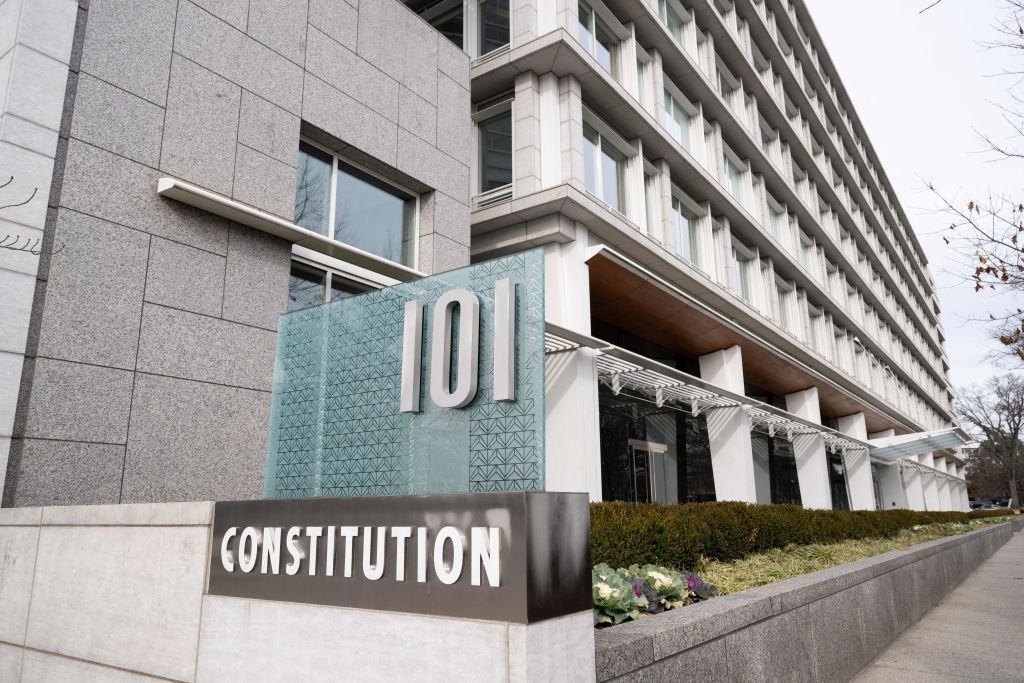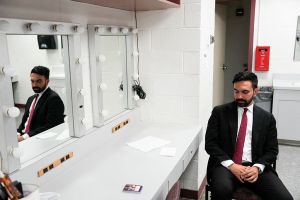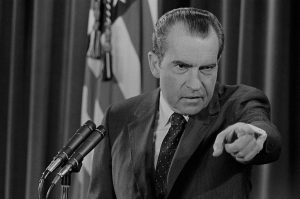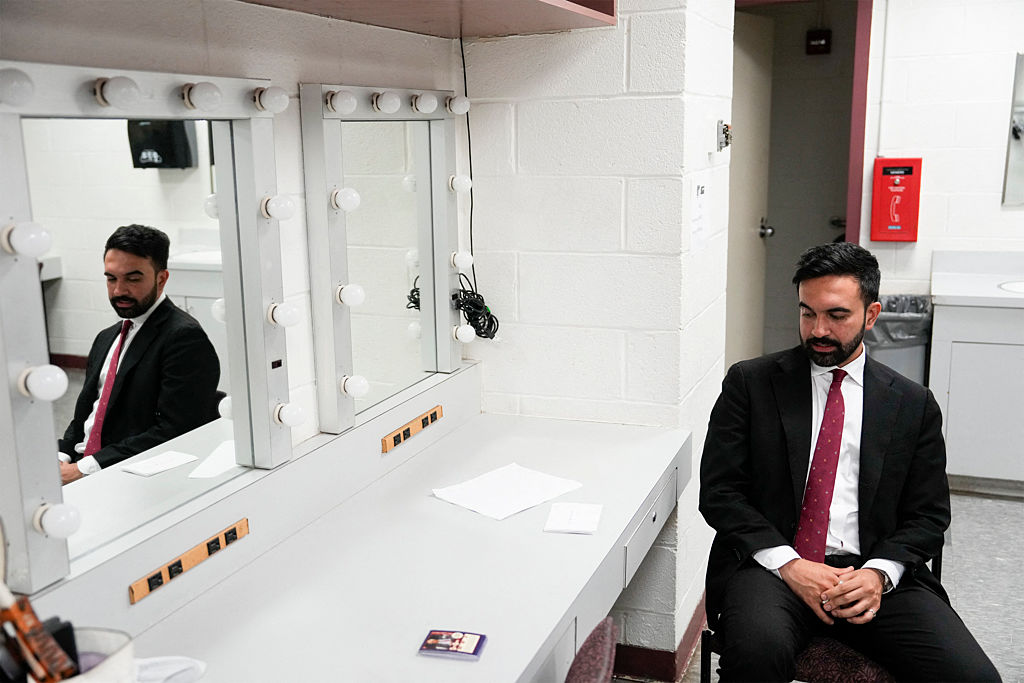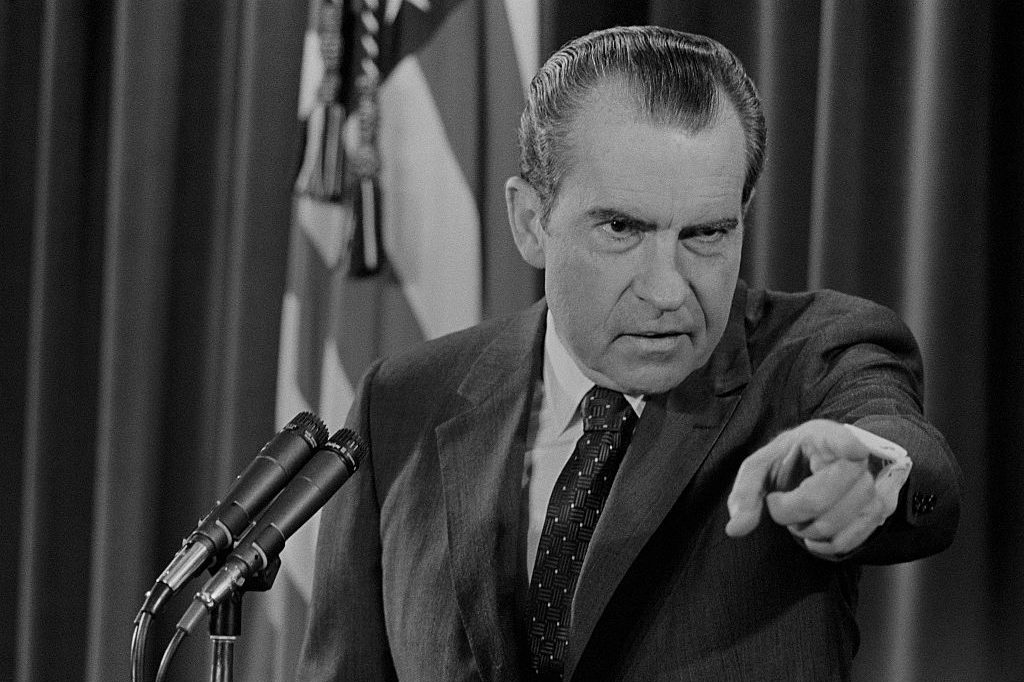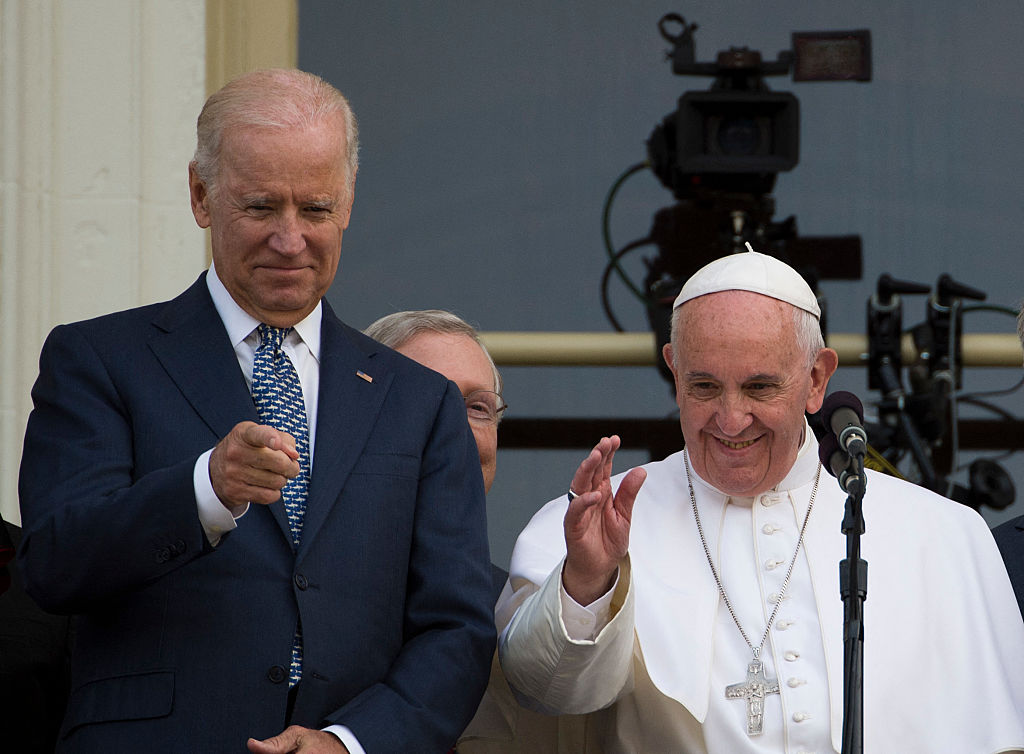Joe Biden has become the Typhoid Mary of classified documents, spreading them as he goes. They keep turning up in batch after batch, everywhere but the floor at a Wilmington Starbucks. The president has said almost nothing about the mess, except to reassure us that “people know I take classified documents seriously.” That defense has since taken on a slight change of punctuation: “People know I take classified documents. Seriously.” He certainly does. He takes them everywhere.
Most recently, classified documents were found at the Penn Biden Center, a foreign policy think tank in Washington, DC established by Biden in partnership with the University of Pennsylvania. The documents raise additional questions. Why were Biden’s lawyers searching there in the first place? We still don’t know. More broadly, how was this center funded, and what were Joe Biden’s connections to the university? Again, we don’t know. Similar questions arise about the Biden Center at the University of Delaware, where Biden has stored over 1,800 boxes.
All these questions remain unanswered, and the White House is stonewalling anyone who dares to ask. The universities themselves are silent as a graveyard.
Important as these questions are, they are not the only ones surrounding Penn’s Washington-based Center. Two others have received little attention but point to deeper troubles at our politicized universities.
The first is that the Penn Biden Center was (and is) effectively an adjunct of one political party, based at a major research university. That’s wrong. No university should embrace such partisanship. It violates the university’s fundamental duty as an institution to maintain its scholarly neutrality. Of course, professors and students are welcome to take whatever political stances they wish, either as individuals or as voluntary groups. But the university itself (and its departments) should avoid them unless they bear directly on the university’s educational responsibilities.
This institutional neutrality is vital to the university’s purpose. It encourages students and faculty to reason for themselves and take their own positions, including unpopular ones, without worrying whether they are running afoul of the people who cut their paychecks or tuition scholarships.
The University of Pennsylvania abandoned this basic responsibility when it sponsored a Washington center tightly bound to one party and its leaders. That mistake is part of Penn’s larger failure to maintain an open academic environment, where free speech and robust discourse are encouraged. In fact, the most authoritative monitor of free speech on campus — the Foundation for Individual Rights and Expression (FIRE) — has ranked Penn the second-worst university in the country for open discourse. Only Columbia is worse. Ben Franklin weeps.
Penn’s failure to maintain institutional neutrality is closely linked to a second problem. The Penn Biden Center was purpose-built to give Biden’s inner circle a snug resting place as they waited for Joe to run again. The former vice president’s position there was richly paid and required almost no work. (He falsely called himself a professor. He wasn’t.) In Chicago, we know all about no-show jobs. The old Democratic machine handed them to its political allies, stashed them in “Streets and Sanitation,” and didn’t call them professors.
But the problems at the Penn Biden Center go beyond Joe Biden lending his name and receiving a comfortable sinecure. The Center also provided a hidden way for donors, both foreign and domestic, to cull favor with a prospective presidential candidate, fatten his wallet, and do it all behind closed doors. The secrecy was especially useful for rich foreign donors, such as those connected to the Chinese Communist Party, who have insinuated themselves at countless, cash-hungry universities.
Penn has flatly declared that its Biden Center did not receive any donor funding, aside from a few thousand dollars. It was funded exclusively by the university, or so they say. What we don’t know is what happened behind the scenes, whether money was transferred from one university account to another to mask its origins. We know, for instance, that the university received significant donations from well-connected Chinese nationals after the Center was established. What we don’t know is who these donors were and what they got for their largesse. Penn won’t say.
These questions arise because no one gives a university $30 million, as these Chinese entities apparently did, without attaching some strings or seeking some benefits. No one cuts multi-million dollar checks and says, “Oh, just use it as you see fit. We have no interest in that.” That never happens. Donors want to know how their money will be spent, and they almost always want something valuable in return. It is entirely reasonable to ask the University of Pennsylvania about that, under oath.
The issues here go beyond one university and its politically connected center. Chinese donors have been active at many universities. Since China is now an adversary, not a friendly partner, Congress needs to know who these donors are, how they are connected to the Chinese Communist Party, which American universities they are engaged with, and what they are getting in return. These questions might start with the Penn Biden Center, but they shouldn’t stop there.
Nor should the questions end with Biden’s mishandling of documents at the Center. Those should be part of a broader inquiry into whether Joe Biden knew or, worse, improperly benefitted from the many profitable contacts his family had with foreign entities, some of them corrupt, some in enemy countries. Until now, the media has shown little interest in this.
These extensive contacts are why Hunter Biden’s infamous laptop is so important. They are why it was so pernicious — and such a flagrant abuse of journalistic standards — to suppress that story before the 2020 election, as mainstream outlets and social media did. The central issue here is not the sad story of a feckless, drug-addled son who traded on his last name. That’s unsavory but not necessarily illegal. The crucial questions are what “the Big Guy” knew; what, if anything, he did to help; and whether he profited personally from his official positions or actions.
The Penn Biden Center is probably safe from these grifts by Hunter and Joe’s brothers. But the Center may not be safe from Joe Biden’s own schemes to leverage his political prominence for cushy funding.
If that is what Joe did at the Penn Biden Center, he did it in tandem with the University of Pennsylvania, which was eager to partner with a powerful politician and link arms with one political party. The university’s partisan role here is part of a larger story — the troubling saga of American universities that have lost their way. They have become avatars of one political ideology, strangling opposing viewpoints, losing sight of their basic mission, and sinking into an institutional and educational abyss.



